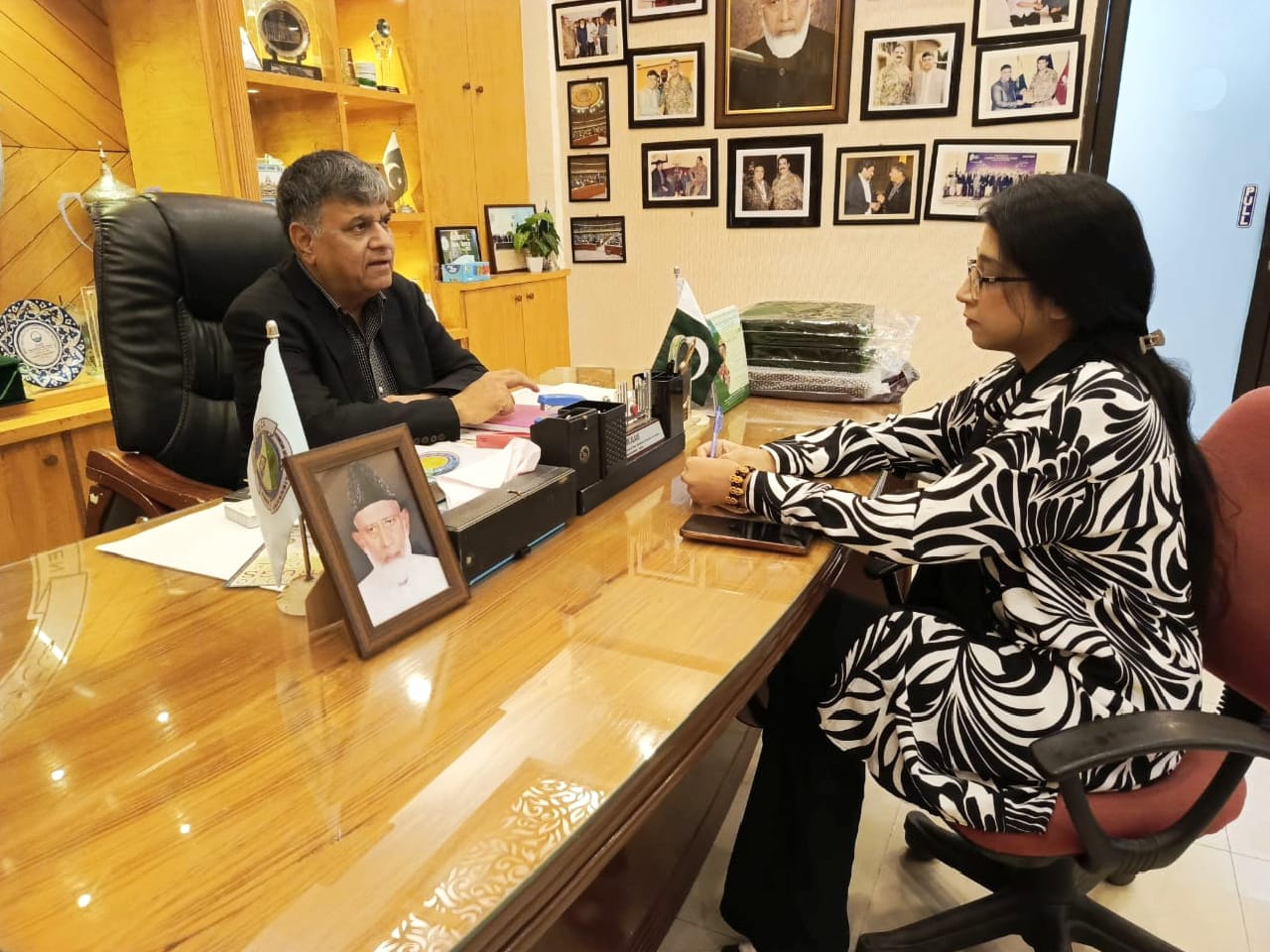By Sabahat Sarwar
Tucked away in the bustling neighborhood of North Nazimabad, Karachi, stands a striking white-domed mausoleum that immediately evokes memories of the iconic Mazar-e-Quaid. But this is not a national monument — it is a deeply personal tribute to a man whose vision reshaped the landscape of women’s education in Pakistan. This mausoleum is the final resting place of Al-Haj Maulvi Raziuddin Ahmed (late), the esteemed founder of Jinnah University for Women — the country’s first university exclusively dedicated to empowering women through higher education.
Al-Haj Raziuddin Ahmed’s commitment to women’s empowerment through education was not just aspirational; it became a lifelong mission. Starting with the establishment of a college in 1986, his dedication culminated in the evolution of the institution into a full-fledged university by 1998. What began with 700 to 800 students has now expanded into a thriving academic community serving more than 7,000 female students from Karachi and across Pakistan’s provinces.
According to Mr. Wajeehuddin Ahmed, the current Chancellor of Jinnah University for Women and son of the late founder, the mausoleum was designed by Raziuddin Ahmed’s sons as a tribute to their father’s unwavering admiration for Quaid-e-Azam Muhammad Ali Jinnah. The design — reminiscent of the Mazar-e-Quaid — was not merely architectural, but symbolic. It represents a life devoted to actualizing Jinnah’s vision of a progressive, educated nation.

The inspiration for naming the university after the Father of the Nation came directly from Jinnah himself. Raziuddin Ahmed was granted written permission to use Quaid-e-Azam’s name for his planned institution, a testament to his dedication and credibility even before Pakistan’s independence. His own father had established 17 educational institutions, embedding a legacy of learning that Raziuddin carried forward with unmatched passion.
In recognition of his remarkable contributions, the Government of Pakistan awarded him the Tamgha-e-Imtiaz, one of the nation’s highest civilian honors in the field of education.
What makes this mausoleum truly unique is its location — not in a public cemetery, but within the university campus itself. As per his final wish, and with government approval, Al-Haj Raziuddin Ahmed was laid to rest in the very grounds he helped construct, often working alongside laborers to bring his vision to life. His desire to be buried within the institution he built reflects the depth of his love for education.
During a recent conversation, Chancellor Wajeehuddin Ahmed expressed deep pride in the university’s alumni, many of whom are now serving in esteemed organizations and holding key positions across Pakistan. “This is the fulfillment of our father’s dream,” he said. “He believed that women’s empowerment begins with education — and today, our graduates are playing influential roles in shaping society.”
Reflecting on the challenges of the 1980s and 1990s, the Chancellor recalled how many families were hesitant to send their daughters to co-educational institutions. Raziuddin Ahmed recognized the need for a safe, dedicated space for female education — and acted boldly, guided by his firm belief that education is a right, not a privilege, regardless of gender.
To this day, the university maintains a uniform dress code, a policy aimed at fostering equality and unity among students from all backgrounds. Whether from modest or affluent households, every student walks the same halls, receives the same education, and wears the same attire — in a space built on principles of dignity, inclusion, and excellence.
The mausoleum of Al-Haj Raziuddin Ahmed stands not just as a final resting place, but as a monument to vision, sacrifice, and progress. It is a quiet, dignified symbol of a man who dared to dream — and built a legacy that continues to empower thousands of women across Pakistan.

